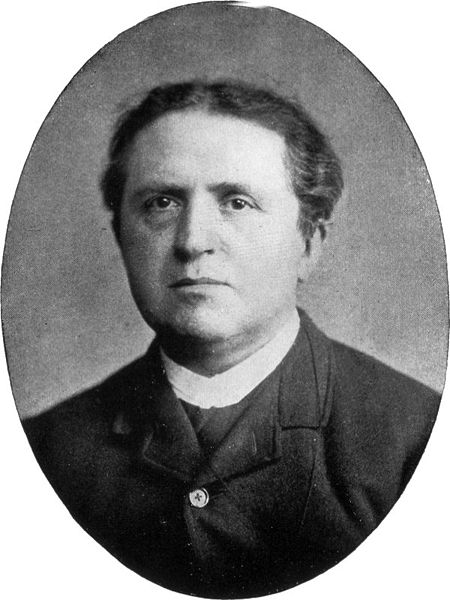Jeremy Pierce writes:
I’ve determined that there’s a political faction out there that needs a name, because it’s a group of conspiracy theorists with a particular agenda that’s becoming somewhat influential, and it’s achieving its agenda fairly well. Its agenda is to discredit mainstream evangelicalism by confusing it with extremist figures who have nearly zero influence on much of any importance.
 What is this conspiracy theory which the always careful philosopher Jeremy has unmasked? He calls it “Dominionismism”, because it started with the invention of a Christian tendency called “Dominionism”. This non-existent -ism has been manufactured by a conflation of three quite different theologies: the Christian political activism of Abraham Kuyper and Francis Schaeffer; the “Dominion Theology” associated with “third-wave Pentecostalism”; and the Christian Reconstructionism of R.J. Rushdoony and others. In fact I already started to unmask this conspiracy theory in my June post Taking over mountains from the grass roots.
What is this conspiracy theory which the always careful philosopher Jeremy has unmasked? He calls it “Dominionismism”, because it started with the invention of a Christian tendency called “Dominionism”. This non-existent -ism has been manufactured by a conflation of three quite different theologies: the Christian political activism of Abraham Kuyper and Francis Schaeffer; the “Dominion Theology” associated with “third-wave Pentecostalism”; and the Christian Reconstructionism of R.J. Rushdoony and others. In fact I already started to unmask this conspiracy theory in my June post Taking over mountains from the grass roots.
 I would agree with the “Dominionismists” in condemning Christian Reconstructionism, a bid to impose Old Testament laws and punishments on modern society. However, I am glad to say that this is very much on the fringe of Christian teaching today and has “nearly zero influence on much of any importance”. The Christian involvement in politics promoted by many evangelicals today, including several US presidential hopefuls, is something quite different, summarised by Jeremy as
I would agree with the “Dominionismists” in condemning Christian Reconstructionism, a bid to impose Old Testament laws and punishments on modern society. However, I am glad to say that this is very much on the fringe of Christian teaching today and has “nearly zero influence on much of any importance”. The Christian involvement in politics promoted by many evangelicals today, including several US presidential hopefuls, is something quite different, summarised by Jeremy as
attempting to do what good we can in the world, and that involves seeking to implement policies that Christians agree with.
Now it is hardly unexpected that atheists and liberal Christians object to evangelicals seeking to implement the policies that they, the evangelicals, agree with, but the atheists and liberals do not. But that is no excuse for anyone to confuse quite different theologies and manufacture a non-existent conspiracy.
The really sad thing is that otherwise good mainstream and more-or-less evangelical Christians like my blogging friend Joel Watts have been led astray by this conspiracy theory and are using it to divide the church and discredit good evangelical teachers. To be fair, Joel has not tagged any posts “dominionist” since 2008. But only last month he posted This Week in Dominionism, the Presidency, and 2012, in which he wrote
I haven’t posted much on Dominionism/Christian Reconstructionism lately, … but it is something which people should be concerned about.
That is enough to show that he has bought into the conspiracy theory which Jeremy has unmasked.
Joel, I agree with you in not liking the politics of Rick Perry or Michele Bachmann, or for that matter of any of the Republican presidential hopefuls, to the limited extent that I know those politics. But if you want to oppose them, please do so by telling the distasteful truth about their policies and their likely effects, not by smearing them with meaningless labels like “dominionist” or linking them with movements like Christian Reconstructionism which I am almost certain that they reject.
But my real concern is not so much for politicians. After all, most of them deserve the abuse which is heaped on them. And I am not going to treat Rick Perry as a good Christian after the revelation reported by Jim West that Perry gives just half a percent of his income to churches and religious organisations. But I do think Joel is going far too far when he condemns a whole slate of widely respected Christian leaders as “heretical” on the basis of short quotations taken out of context and a completely unjustifiable attempt to assert guilt by association with the word “dominionism”. This is completely irresponsible spreading of dissent and division in the church.
Joel, I know you are a reasonable man and prepared to change your views and admit it publicly. I appeal to you to reconsider what “dominionism” actually means, and to accept that the Christian leaders whom you name, although they may have said some stupid things, do not teach anything like Christian Reconstructionism, but only the kind of generalised Christian involvement in politics which in your saner moments you actually seem to support.









